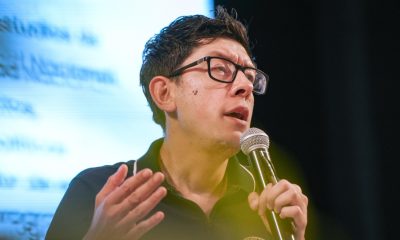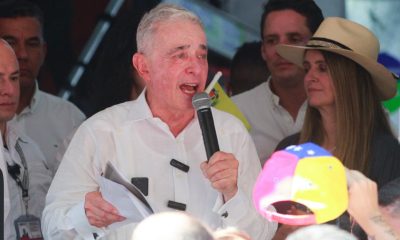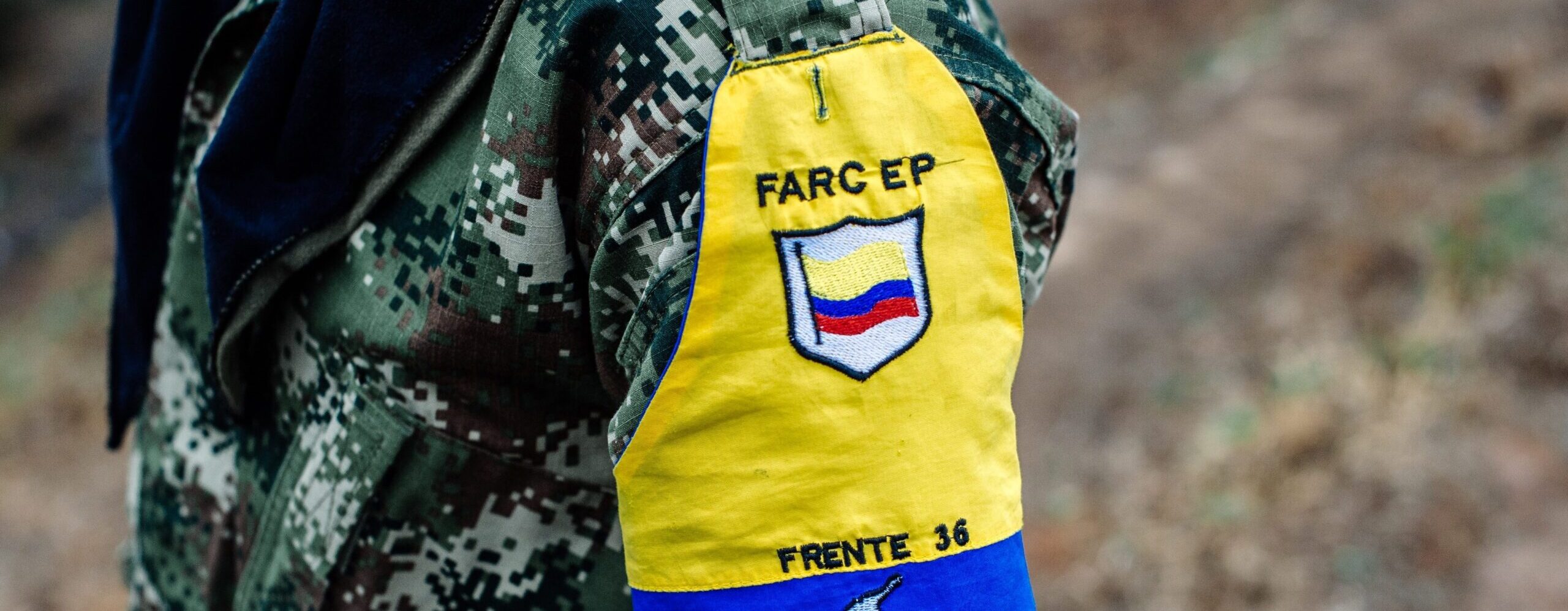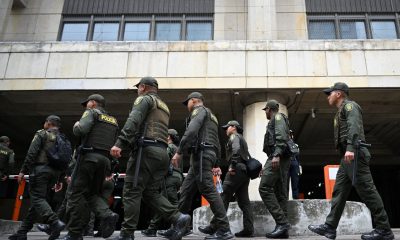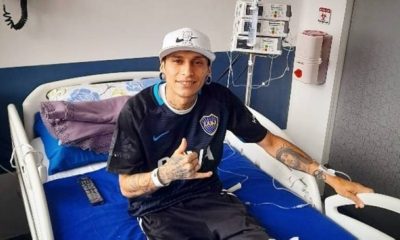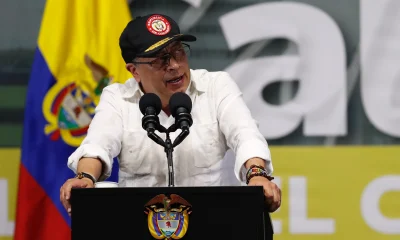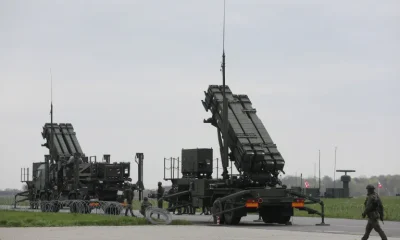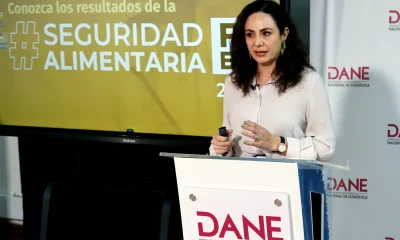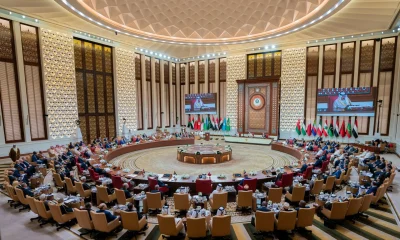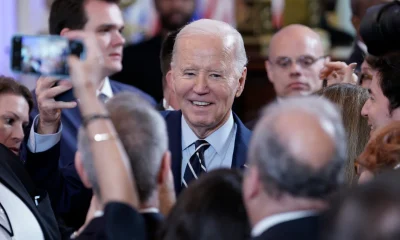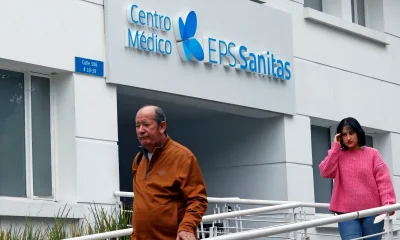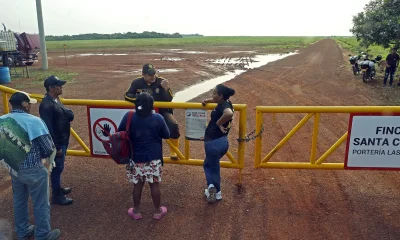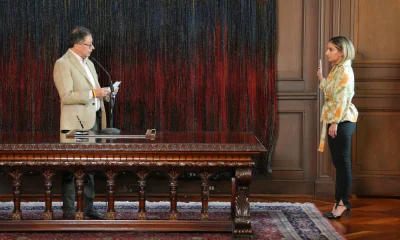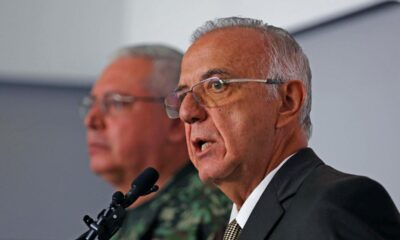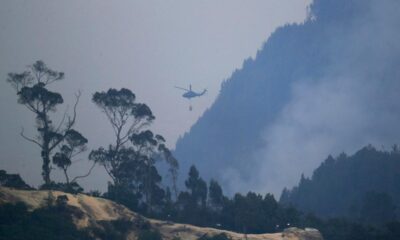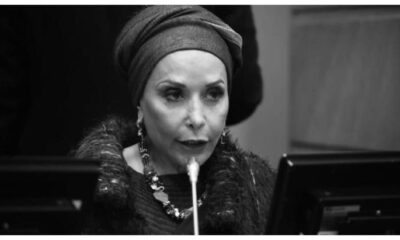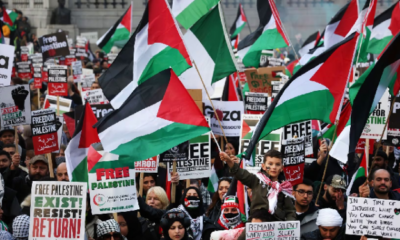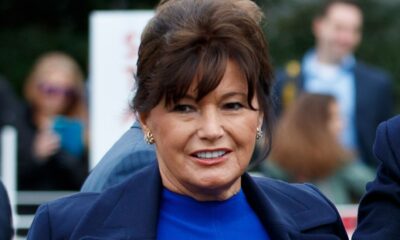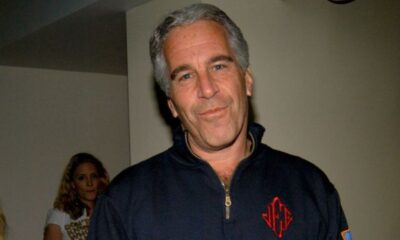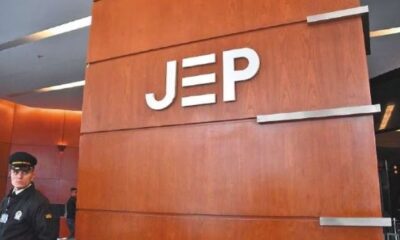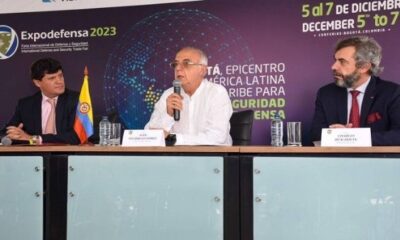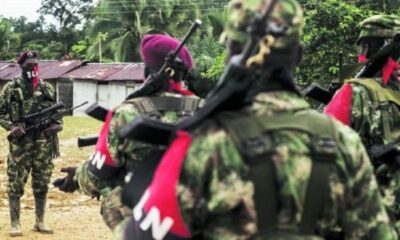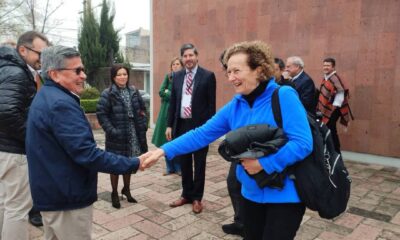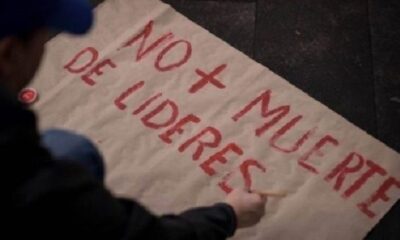International
Colombia, rebels, seek US involvement in peace talks
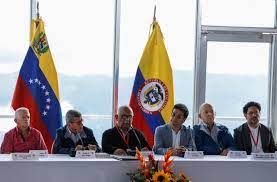
| By AFP |
Colombia’s government and the National Liberation Army (ELN), the last recognized rebel group in the country, said Friday they would invite the United States to join their peace process.
The talks are an initiative by President Gustavo Petro, who in August became Colombia’s first-ever leftist leader, and has vowed a less bellicose approach to ending violence wrought by armed groups, including leftist guerrillas and drug traffickers.
The parties resumed formal talks in Venezuela on Monday for the first time since 2019.
They agreed to reach out to the United States via diplomatic channels “to find out its willingness to participate in the process” and send a special envoy, according to a statement from Norway, one of the guarantors of the talks.
The statement said the talks had taken place in an environment of “trust and optimism.”
The parties also agreed to invite Brazil, Chile, and Mexico to join Norway, Cuba, and Venezuela as guarantors of the process.
Germany, Switzerland, and Spain would also be invited as “accompanying countries.”
Around 30 delegates are attending the talks which are expected to last three weeks.
Colombia has suffered more than half a century of armed conflict between the state and various groups of left-wing guerrillas, right-wing paramilitaries and drug traffickers.
The ELN started as a leftist ideological movement in 1964 before turning to crime, focusing on kidnapping, extortion of the oil industry, and drug trafficking in Colombia and neighboring Venezuela.
It has around 2,500 members, about 700 more than it did when negotiations were last broken off. The group is primarily active in the Pacific region and along the 2,200-kilometer (1,370-mile) border with Venezuela.
Dialogue with the group started in 2016 under ex-president Juan Manuel Santos, who signed a peace treaty with the larger Marxist Revolutionary Armed Forces of Colombia (FARC) rebel group that subsequently abandoned its weapons and created a political party.
But the talks with the ELN were called off in 2019 by conservative former president Ivan Duque following a car bomb attack on a police academy in Bogota that left 22 people dead.
Petro — himself a former guerrilla — reached out to the ELN shortly after coming to power, as part of his “total peace” policy.
International
Epstein Denies Being ‘the Devil’ in Newly Released Video Interview
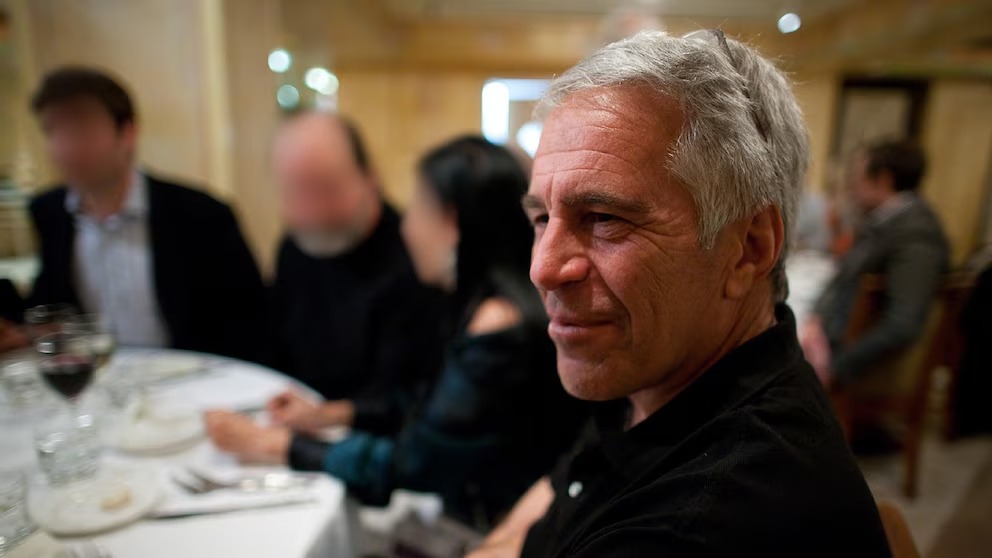
Jeffrey Epstein claims he was the least dangerous type of sex offender and denied being “the devil” in a video interview included in the latest batch of documents released over the weekend by the U.S. Department of Justice.
The roughly two-hour interview was conducted by Steve Bannon, a former adviser to U.S. President Donald Trump, and appears to have been recorded at the late financier’s New York residence on an unknown date.
Epstein died by suicide in 2019 while in jail awaiting trial on sex trafficking charges involving minors. Since December, the U.S. government has released millions of documents related to the case under transparency laws.
“Do you think you’re the devil incarnate?” Bannon asks Epstein in the video interview revealed in the latest release.
“No, but I do have a good mirror,” Epstein replies with a smile, wearing a black shirt and glasses. When pressed again, he adds, “I don’t know. Why would you say that?”
Epstein, who pleaded guilty in 2008 to soliciting a minor for prostitution, also appears to downplay the seriousness of his conviction.
He objects when Bannon refers to him as a “Level Three sexual predator,” a classification in the United States indicating a very serious threat to public safety.
“No, I’m the lowest,” Epstein says.
“But still an offender,” Bannon responds.
“Yes,” Epstein replies.
The exchange comes after Bannon asks Epstein whether he considers his wealth to be “dirty,” suggesting it was earned by advising “the worst people in the world.”
Epstein insists that he made his money legally, while acknowledging that “ethics is always a complicated issue.”
He claims he donated money to help eradicate polio in Pakistan and India, apparently in an attempt to justify the origins of his fortune.
The documents also show that Bannon maintained regular correspondence with Epstein, who offered to help the far-right political figure spread his conservative ideology in Europe.
Since Trump took office in January 2025, U.S. authorities have released millions of pages related to Epstein, along with photos and videos.
These materials have shed new light on Epstein’s ties to high-profile business executives such as Microsoft co-founder Bill Gates, celebrities including filmmaker Woody Allen, and academics and political figures, among them Trump and former President Bill Clinton.
International
Hypothermia Linked to Most Deaths During New York’s Recent Cold Spell
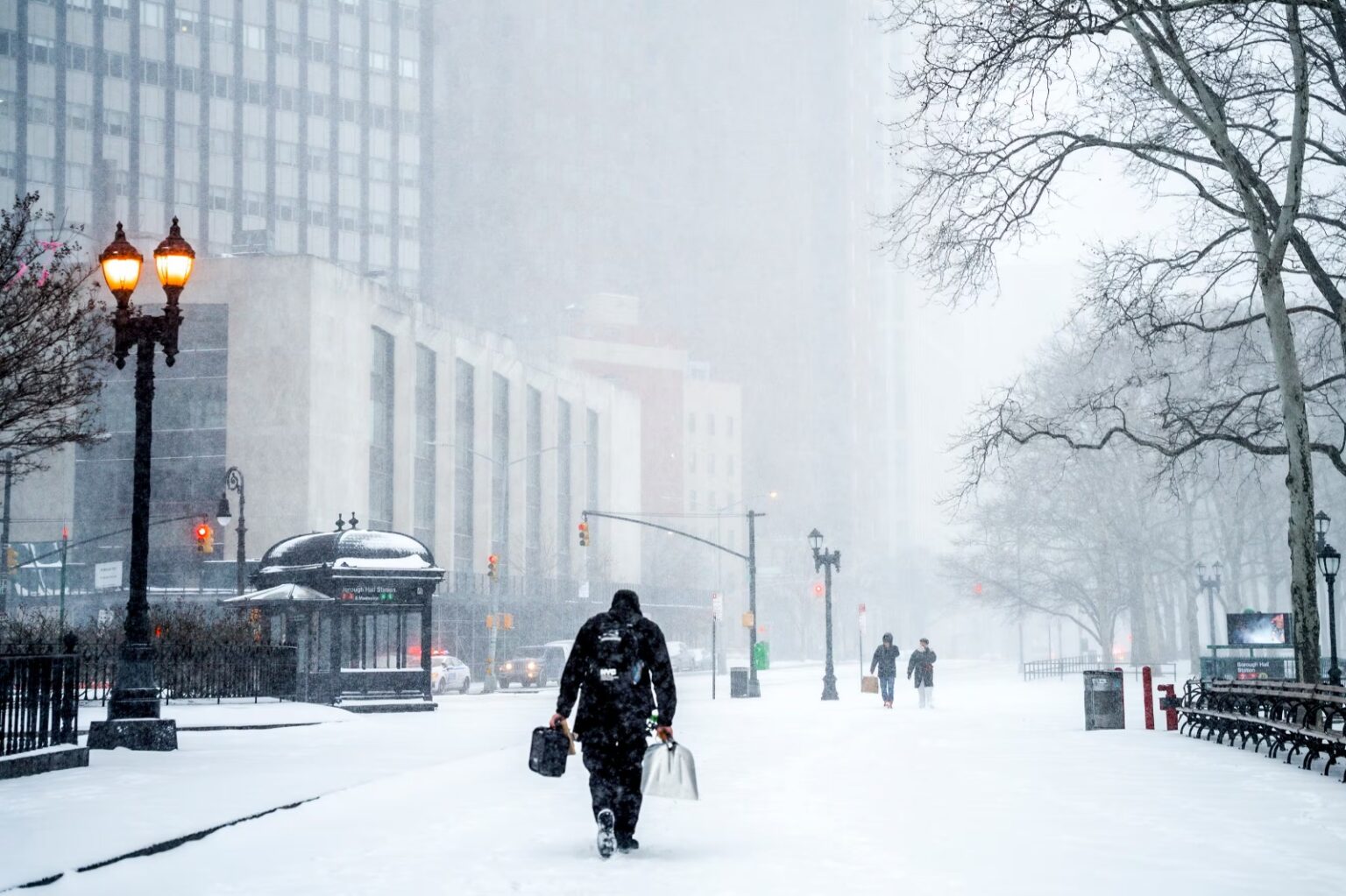
Hypothermia “played a role” in 13 of the 16 deaths recorded in New York City during the recent period of extreme cold, Mayor Mandami said at a press conference. Three of the deaths were classified as drug overdoses.
None of the individuals were sleeping on the streets at the time of their deaths, the mayor added, noting that some had previously been in contact with emergency shelter services.
Mandami said the city has activated emergency warming centers and deployed a fleet of 20 vehicles staffed with medical personnel to respond to the cold weather crisis.
“As of this morning, we have made more than 930 referrals to shelters and safe facilities. We have also involuntarily transported 18 New Yorkers who were deemed a danger to themselves or others,” he said.
According to official statistics, New York City recorded between nine and 27 cold-related deaths per year from 2005 to 2021. That number rose to 34 in 2021 and climbed further to 54 in 2022.
City Comptroller Mark Levine estimated that there are “tens of thousands” of homeless New Yorkers, “most of them families with children.”
He said that “nearly 95%” of the city’s homeless population lives in municipal shelters.
In August 2021, those shelters housed 44,586 people, the “lowest daily population in nearly a decade,” according to official data.
However, the shelter population increased from 22,955 to 62,679 people between January 2000 and January 2020, highlighting the long-term growth of homelessness in the city.
International
NFL Investigating Emails Linking Giants Executive to Jeffrey Epstein
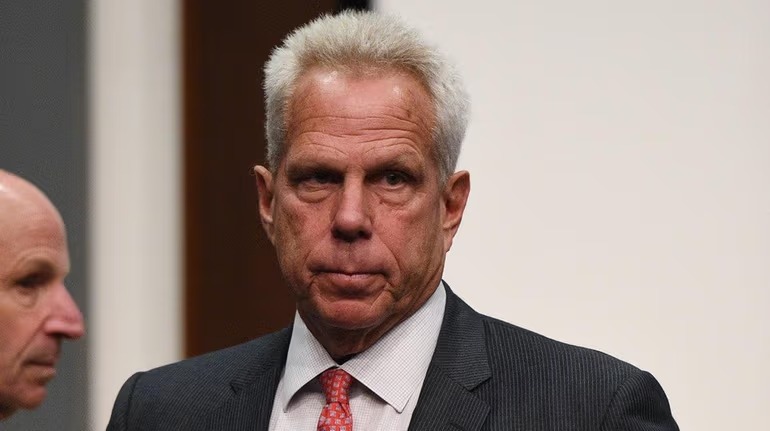
NFL Commissioner Roger Goodell said on Monday that the league will “examine all the facts” regarding contacts between New York Giants co-owner Steve Tisch and Jeffrey Epstein, revealed in documents recently released about the late convicted sex offender.
The batch of files, made public on Friday by the U.S. Department of Justice, includes emails suggesting that Epstein introduced several women to Tisch.
Tisch, a film producer who has never been charged in connection with Epstein, issued a statement last week denying any wrongdoing.
“I had a brief relationship in which we exchanged emails about adult women, and we also discussed film, philanthropy, and investments,” Tisch said of his correspondence with Epstein, which dates back to 2013.
“I did not accept any of his invitations and never went to his island. As we all now know, he was a terrible person and someone I deeply regret having associated with,” he added.
Speaking at a press conference in San Jose, California, on Monday, Goodell said the NFL would carefully review the details of the ties between Tisch and Epstein.
“We’re going to examine all the facts,” the commissioner said. “We’re going to look at the context of those exchanges, try to understand them, and see how that fits within the league’s policies.”
Tisch, 76, could face disciplinary action under the NFL’s strict personal conduct policy, even if he is not found guilty of a crime.
“We’re going to take this step by step. First, let’s gather all the facts,” Goodell said at the press conference, which was part of the events leading up to Sunday’s Super Bowl between the Seattle Seahawks and the New England Patriots.
-

 Central America5 days ago
Central America5 days agoPanama Supreme Court Strikes Down Panama Ports Concession as Unconstitutional
-

 Central America5 days ago
Central America5 days agoU.S. and Guatemala Sign Trade Deal Granting Zero Tariffs to Most Exports
-

 International21 hours ago
International21 hours agoMexico to Send Humanitarian Aid to Cuba Amid U.S. Threats Over Oil Shipments
-

 International21 hours ago
International21 hours agoSpain Seeks to Ban Social Media Access for Children Under 16
-

 International21 hours ago
International21 hours agoEpstein Denies Being ‘the Devil’ in Newly Released Video Interview
-

 International21 hours ago
International21 hours agoPetro Resumes Extraditions, Sends Top Criminal to U.S. Before White House Talks
-

 International21 hours ago
International21 hours agoHypothermia Linked to Most Deaths During New York’s Recent Cold Spell
-

 Central America3 days ago
Central America3 days agoCosta Rica Goes to the Polls as Voters Choose Continuity or Change
-

 International21 hours ago
International21 hours agoMexico Arrests Suspect in Shooting of Sinaloa Lawmakers
-

 Central America21 hours ago
Central America21 hours agoLaura Fernández Says She Will ‘Never’ Allow Authoritarianism in Costa Rica
-

 International21 hours ago
International21 hours agoNFL Investigating Emails Linking Giants Executive to Jeffrey Epstein































